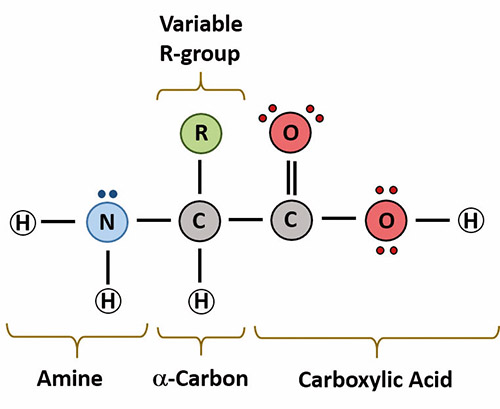





Dear Jenn,
A friend of mine has been on a strict vegan diet for many years. She swears veganism is the way to go for weight control and good health. She exercises regularly. Honestly, she looks great, seems energetic, and glows. With her encouragement, I tried a vegan-based diet to lose weight and feel better about myself. I ate vegan for two weeks, but I felt hungry and bloated and worse, I actually gained weight! I even made an effort to walk despite the summer heat. What is your opinion regarding a vegan diet for health and weight control? And why did I fail to feel better or lose any weight?
Sincerely,
Vegan Weight Gainer
Dear Vegan Weight Gainer,
Vegetarian diets have pros and cons. I discussed them in a previous Jewish Link column, “Considering a Vegetarian Lifestyle?” November 4, 2021). There are many types of vegetarian diets, but one has to be careful to maintain a nutritious, balanced diet when going vegetarian. Let’s explore and see what happened to you.
Review of the Types of Vegetarians
Lacto-Vegetarian: A diet of milk and plant-based foods.
Ovo-Vegetarian: Eggs and a plant-based diet.
Lacto-Ovo Vegetarians: A diet of dairy products, eggs and plant-based foods.
Flexitarian: A plant-based diet with occasional meat items. Vegetarians often criticize this group, claiming they are not committed to the philosophy.
Pescetarianism: Consumes fish and a plant-based diet. (Will eat dairy at times.)
Vegan: Consumes a plant-based diet exclusively.
My guess is that your friend has learned a lot about eating as a vegan. She probably invested much time learning interesting recipes that incorporate varied nutrients, especially proteins. However, how does your friend, who only consumes a plant-based diet, assure that she receives adequate protein? Did she give you recipes to follow to help you consume adequate nutrient intake?
Plant Proteins vs. Whole Proteins
Proteins are made up of amino acid molecules. Amino acids are the building blocks for proteins like enzymes, hormones, hair and blood—our entire body! All amino acids have: a nitrogen group (-NH2), a carboxyl group (-COOH) and a variable R-group. The Variable R-group is what makes the amino acids have specific characteristics and always attaches itself to the carboxyl group. That’s the chemistry! See figure.
* Although all living things are made up of proteins, not all proteins are available for human consumption.
Whole Proteins: There are nine essential amino acids that must be present in a protein-based food source to make it a “whole protein.” Meat, poultry, fish, dairy and eggs are whole proteins.
Humans require these nine essential amino acids together in a product for adequate protein intake.
Plant Proteins: Plants are made up of proteins too, however they lack one or more of the “nine essential amino acids” and are called “incomplete proteins.” Consuming only a plant-based diet puts you at risk for protein deficiency.
Note: Herbivores are animals who feed solely on plants. They have specific digestive enzymes to break down cellulose (plant starch) and have access to plant proteins, sugars and fat. Humans lack this ability. We need whole proteins!
Protein Deficiency Symptoms Include:
*Fatigue *Weakness *Thinning Hair *Brittle Nails *Dry Skin *Nausea *Mood Changes *Low Blood Pressure *Hunger *Diarrhea *Edema *Fatty Liver *Muscle Wasting *Weakened Bones *Susceptibility to Infection.
NOT GOOD!
How Much Protein Do You Need?
The recommended daily allowance (RDA) is 0.4 grams of protein per pound of body weight. Vegan Weight Gainer, were you getting enough whole protein on your vegan diet?
*If you go vegan, you must consume plant proteins in specific combinations to assure you receive adequate whole proteins. See chart:
This chart shows how to create a whole protein by combining plant protein sources in specific ways:
The chart shows how to create a whole protein by combining plant protein sources in specific ways.
Eating a variety of fruits and vegetables will assure adequate vitamins and minerals. And remember adequate fluids 6-8 cups daily for best health outcome.
Vegan Weight Gainer, why did you gain weight on a vegan diet?
You consumed too many calories! And you did not exercise regularly. Exercise boosts metabolism and burns fat! Exercise must be consistent!
Excess calories, even from healthy foods, cause weight gain. Freely consuming large portions of beans, rice, pasta, nuts, seeds, tofu, hummus and plant-based oil dressings causes weight gain. Some people get flatulence from eating beans, broccoli, cauliflower, onions and other sulfur-based and high-fiber foods. Nosh foods like popcorn, chips and veggie dips can be caloric too. Weight loss is based on calorie reduction and increased energy expenditure. Weight gain is caused by excess calorie consumption and storage as fat.
Foods to Avoid
Vegan Weight Gainer, eating healthy foods is important whether you are vegan or not. But if you go vegan, 1) combine complementary proteins for adequate intake; 2) control total caloric intake; 3) control portion sizes; and 4) exercise consistently.
If you are looking for quick weight loss that stays off, or need assistance with a specific diet plan, call Nutrition Transformations. We will help you succeed. (We can offer medication to jumpstart your weight loss.)
Yours in good health,
Jenn
718-644-1387
www.nu-transform.com
See August blog










